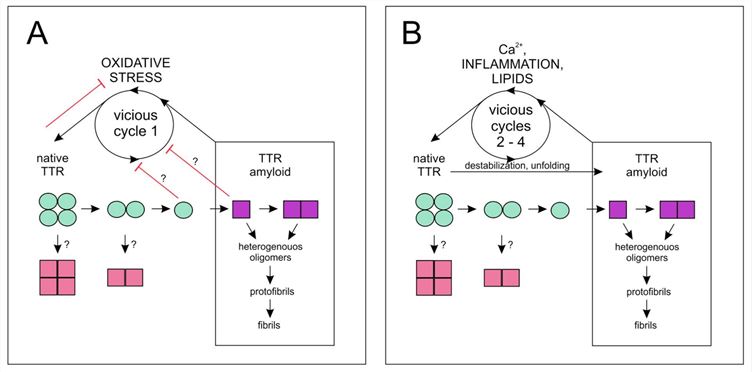As an experienced antibody supplier, Creative Biolabs has consistently paid attention to the development, engineering, and manufacture of in vitro diagnostic (IVD) antibodies to aid in the diagnosis of various diseases, including cancers. Our services target different diagnostic markers of lung cancer. Especially, transthyretin (TTR) has been recognized as a compelling biomarker of lung cancer and we can generate corresponding antibody products using our flexible strategies.
Introduction of TTR
TTR, originally called prealbumin synthesized in the liver, choroid plexus, and retina, is a normal serum protein with 55kDa. It is a homotetramer with a dimer of dimers quaternary structure and its mutation commonly relates to amyloid deposition. As a carrier in plasma, TTR involves in the transport of thyroxine and retinol (vitamin A) under pathological conditions. This protein may also participate in other intracellular processes, such as proteolysis, autophagy, nerve regeneration, and glucose homeostasis. As a protective molecule, TTR can prevent the formation of cerebral amyloid plaque during the pathogenesis of Alzheimer’s diseases (AD). Furthermore, it is down-regulated in cases with severe liver disease, malnutrition, or acute inflammation. The reduced serum concentration of TTR has been regarded as a marker to assess malnutritional/inflammatory status under different situations.
 Fig.1 Amyloid formation pathways and vicious cycles of TTR.1
Fig.1 Amyloid formation pathways and vicious cycles of TTR.1
TTR Marker for Lung Cancer
Lung cancer is one of the most common malignant cancers worldwide, with a 5-year survival rate of 14%. Thus far, the statistics for tumorigenesis and outcome reveal that lung cancer remains a primary cause of mortality from cancers. The low level of serum TTR has been reported in various types of tumor, including lung cancer.
In the present study by Hao et al. (2016), the mRNA expression of TTR in frozen lung cancer tissues was examined by RT-PCR, together with the specific expression and cellular distribution of TTR were evaluated in 104 lung cancer samples and 3 normal lung tissues by immunohistochemistry (IHC). We found that no expression of TTR in normal lung tissues and except for mucinous adenocarcinoma, TTR was observed in all tested subtypes of lung carcinoma. Adenocarcinoma exhibited the highest positive expression rate of TTR, accounting for 84.4 %, and the positive rate of TTR was up to 85.7 % at stages III and IV. As such, it may be useful as a biomarker to improve the diagnosis of lung cancer.
IVD Antibody Development Service for TTR Marker
Overall, exploration of very precise bio-indicators is valuable for early diagnosis of cancers. At Creative Biolabs, we provide customized IVD antibody development services against a wide range of new and traditional biomarkers. Moreover, we offer immunoassay development services of different formats such as ELISAs, immunohistochemistry, western blot, and flow cytometry.
Creative Biolabs has years of experience in antibody development and IVD immunoassay development. We’re skilling at tailoring one-stop, custom-oriented services targeting a variety of disease biomarkers. If you’re interested in our services, please contact us for more information or directly send us an inquiry.
Reference
- Wieczorek, Elżbieta, and Andrzej Ożyhar. "Transthyretin: from structural stability to osteoarticular and cardiovascular diseases." Cells 10.7 (2021): 1768. Distributed under Open Access license CC BY 4.0, without modification.
For Research Use Only.